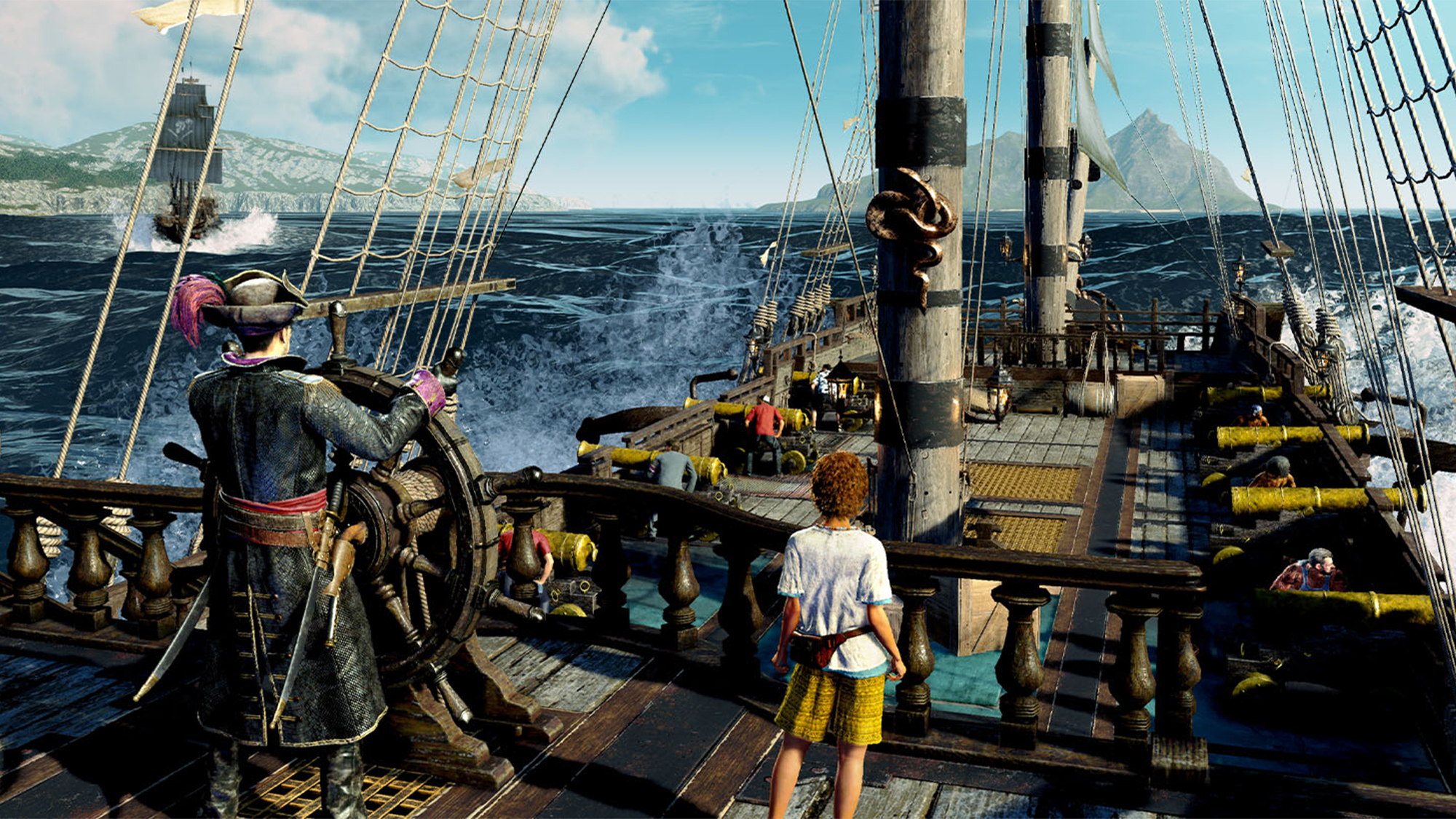Tom's Guide Verdict
Against all odds, Like a Dragon: Pirate Yakuza in Hawaii delivers everything I love about the series alongside a full-fledged pirate sim. Its modest scope can’t facilitate the level of immersion of other seafaring titles but what it lacks in spectacle, it more than makes up for in charm and heart.
Pros
- +
Sea battles are fast and fun
- +
Beat-’em-up combat is more satisfying than ever
- +
Charming and often downright hilarious
- +
So much content
Cons
- -
Story isn’t as deep as other games in the series
- -
Combat controls can be fiddly
- -
Too many recycled mini-games
Why you can trust Tom's Guide
Platforms: PC, PS4, PS5 (reviewed), Xbox One, Xbox Series X
Price: $59 / £54 / AU$99
Release Date: February 21, 2025
Genre: Action-RPG
The first draw of many Western gamers to the world of Yakuza was the prospect of ‘GTA in Japan.’ The series promised gritty crime dramas with tattooed gangsters smashing skulls. When I finally got to dive into the series some years later, relocalized and remastered, I discovered that this isn’t quite what the series delivers. Tattooed gangsters are indeed front-and-center, but at their core, Yakuza games have always been RPGs, ones that tell intricate stories of love and redemption with a whole lot of sincere wit and heart. This latest title follows that formula to a tee with one big, swashbuckling twist: this time you’re a pirate.
Like a Dragon: Pirate Yakuza in Hawaii review: The Basics
- What is it? A sea-faring spin-off of the long-running beat-em-up-cum-RPG series which combines third-person action-adventuring with naval combat and ship management. Side-quests and minigames abound.
- Who is it for? Anyone who likes arcade action served up with lots of wit and charm. Although longtime fans will get the most out of it, this is a standalone story that can be played by anyone.
- What’s the price? The Standard Edition of Like a Dragon: Pirate Yakuza in Hawaii costs $59. There’s also a Digital Deluxe Edition that costs $69. The Collector’s Edition will run you $129.
- What other games has the developer made? Ryu Ga Gotoku Studio has made every Like a Dragon game, from Yakuza in 2005 all the way to Like a Dragon: Infinite Wealth, the eighth mainline game in the series which was released last year. They’ve also made several spin-offs including two Judgment games, Like a Dragon Gaiden: The Man Who Erased His Name, and now Like a Dragon: Pirate Yakuza in Hawaii.
- What games is this similar to? The Yakuza games are story-driven third-person action-adventure games, with 3D beat-em-up combat and lots of mini-games. This title adds naval combat but you’ll spend more time on dry land than on the seas. For fans of Sleeping Dogs and Assassin’s Creed IV: Black Flag.
New horizons
Arriving on a wave of goodwill after the widely beloved Like a Dragon: Infinite Wealth comes a new spin-off starring everyone’s favorite one-eyed ex-Yakuza Goro Majima. Majima is a mainstay of the series, first introduced as a villain and then morphed into an anti-hero. The eccentric thug is the wild yin to Kazuma Kiryu’s stoic yang. His penchant for the absurd and ostentatious (as well as his missing eye) makes him the perfect candidate for the craziest Yakuza spin-off yet.
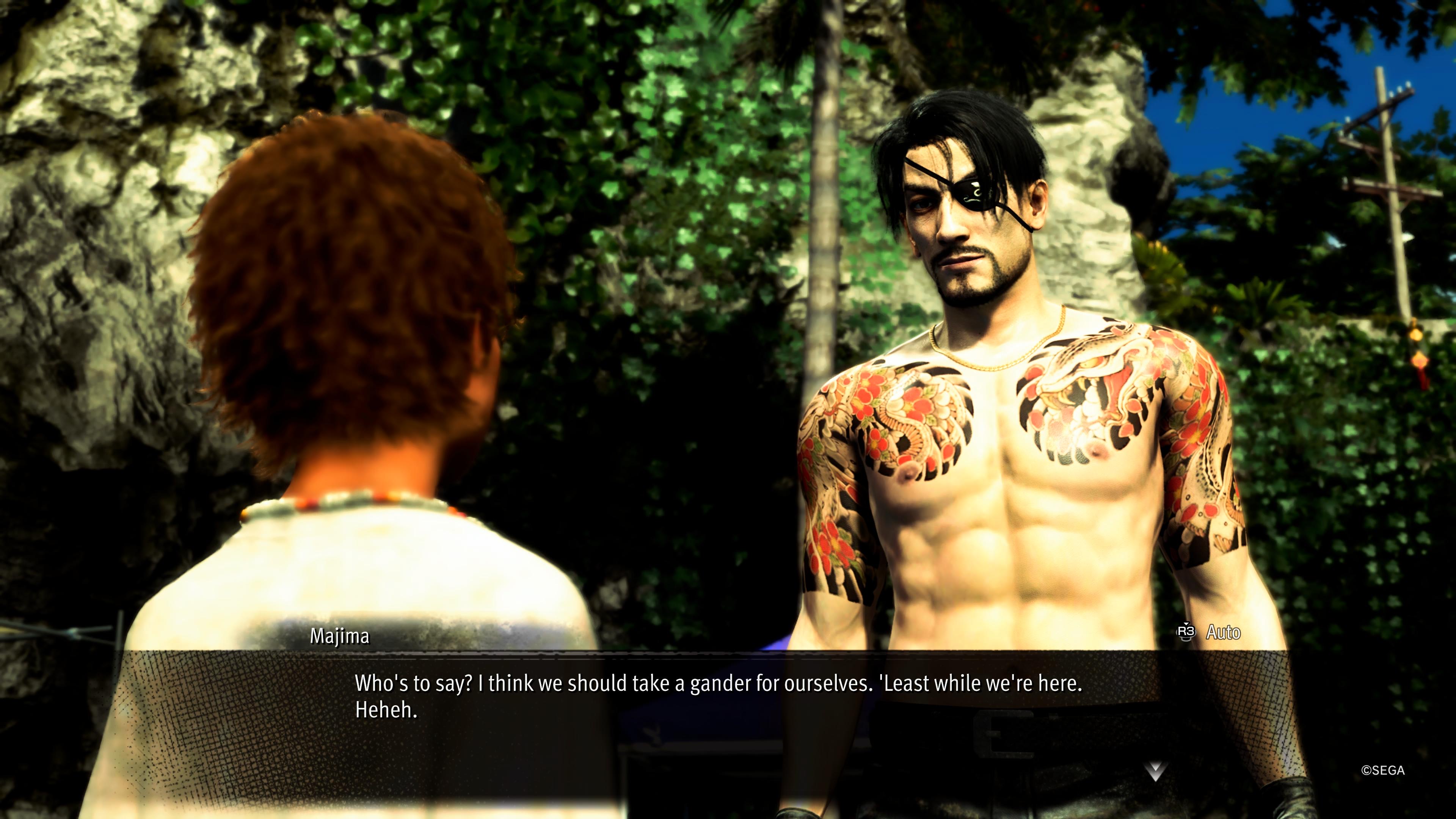
Although it doesn’t bear the name in the West, Pirate Yakuza is a new entry in the Like a Dragon Gaiden series, which began in 2023 with the spy-themed Like a Dragon Gaiden: The Man Who Erased His Name. Without getting bogged down in the naming conventions of this Japanese series (it gets messy) these side-stories are Ryu Ga Gotoku Studio’s chance to play around with some out-there mechanics while delivering the beat-’em-up combat that has been abandoned in favor of turn-based fighting in the main series.
The game opens with a dazed and confused Majima washing up on the shore of a Hawaiian island and wouldn’t you know it, he’s gone and lost his memories. Amnesia is a tired trope, a fact that the script acknowledges multiple times, but in the soap opera world of Yakuza, you just have to go with it. Soon enough Majima encounters some down-on-their-luck islanders, being terrorized by wannabe pirates. A couple of fist-fights and some talk about a secret treasure containing an elixir of life later, Majima has obtained a sea-worthy vessel and the adventure begins.
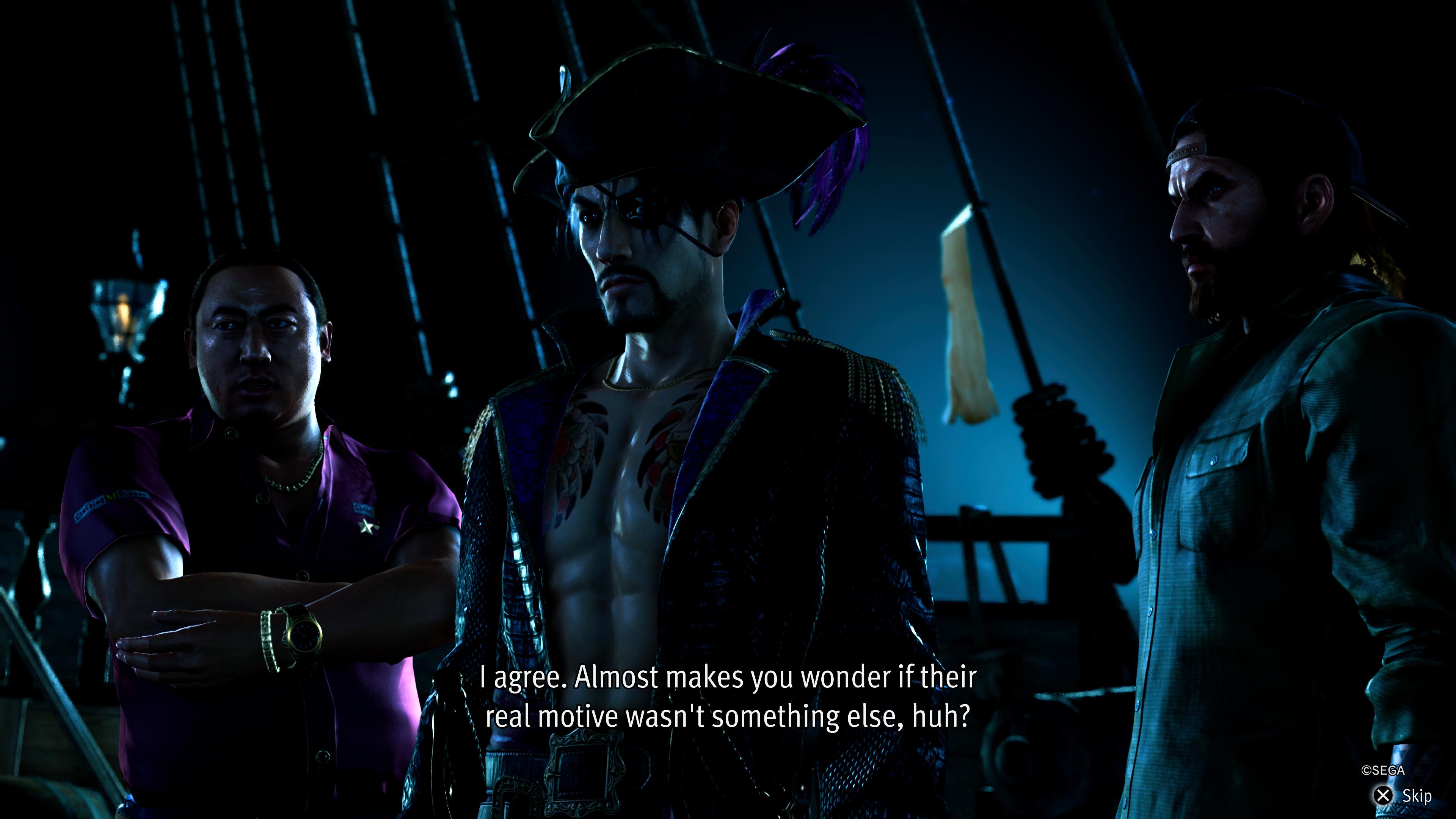
What follows is a 20-25 hour joyride across the Pacific seas, taking you to the sundrenched beaches of Honolulu via a lawless Pirate Pleasure Island. Beyond the Pirate trappings, it's typical Yakuza fare. A rogue’s gallery of shady bosses vie for control of the region’s criminal underworld and Majima’s crew gets swept up in chaos. Along the way friends become enemies and enemies become friends as you unravel the mysteries of this so-called mystical treasure.
What really makes the story tick are the unlikely friendships that Majima strikes up on his journey. A wide-eyed youngster who becomes a surrogate son to the aging ex-Yakuza is the innocent and sometimes irritating heart of the story. His washed-up father and a machete-toting chef soon join the crew before some familiar faces from past games show up to bolster the ranks.
Cruising for a bruising
Taking to the seas for the first time, my prevailing thought was: Wow, they actually did it. Powered by the Dragon Engine, Pirate Yakuza looks and feels the part as you take sail — you can practically taste the salty air and feel the sea splash as you sail through the sun-kissed seas. Your ever-growing crew tends to the ship as you pilot, and you can even switch to deck mode to seamlessly strut the deck and interact with them. It’s not as awe-inspiring as Skull and Bones, or its chief inspiration — Assassin’s Creed IV: Black Flag, but I’ll be darned if it doesn’t feel like an authentic sailing experience.
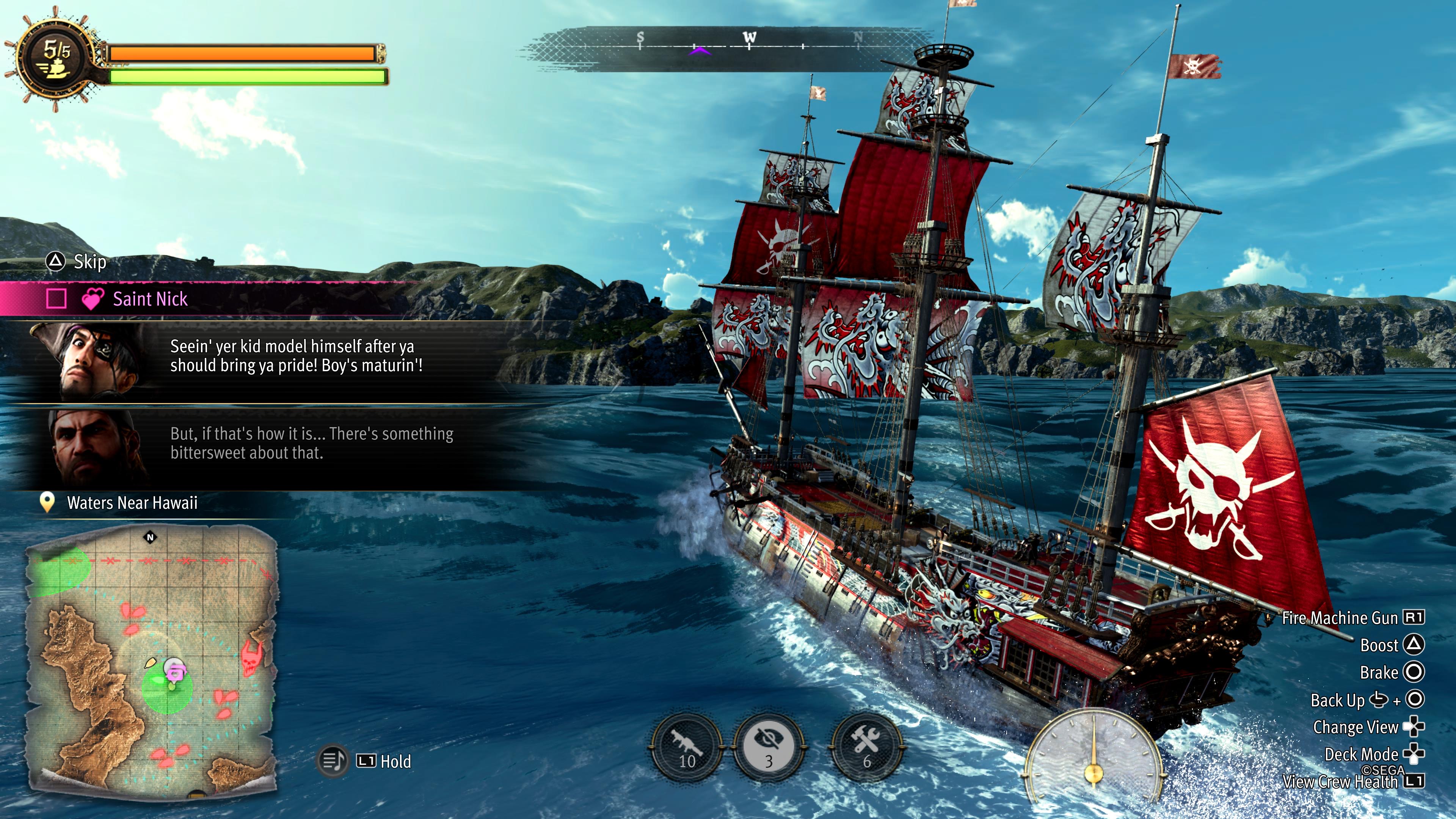
Your ship handles more like a souped-up motor from Need for Speed than a heavily armored galley. You cut through the seas at pace with a rocket-powered boost that even allows you to drift, wheeling the ship around to reposition your cannons in a flash. The ship is mounted with machine guns that fire straight ahead and cannons on either side, which can be upgraded or replaced with flamethrowers and laser guns. You can also ram opposing ships using boost to deal a decent bit of damage.
Lining up shots with your side-mounted canons is the most effective way to do damage here, so you’ll find yourself utilizing that drift at every given opportunity. The game is missing Black Flag’s ‘brace’ function, which allowed you to hunker down to mitigate damage when you’re in the firing line. If you can’t get out of the way of an incoming shot, all you can do is hold your breath and hope for the best. You can also switch to deck mode during combat to fire a rocket launcher or man the guns personally. Although it's a nice feature, I found it had little utility in combat — losing control of your galley is not worth the novelty of being in the thick of the action.
Dead men tell no tales
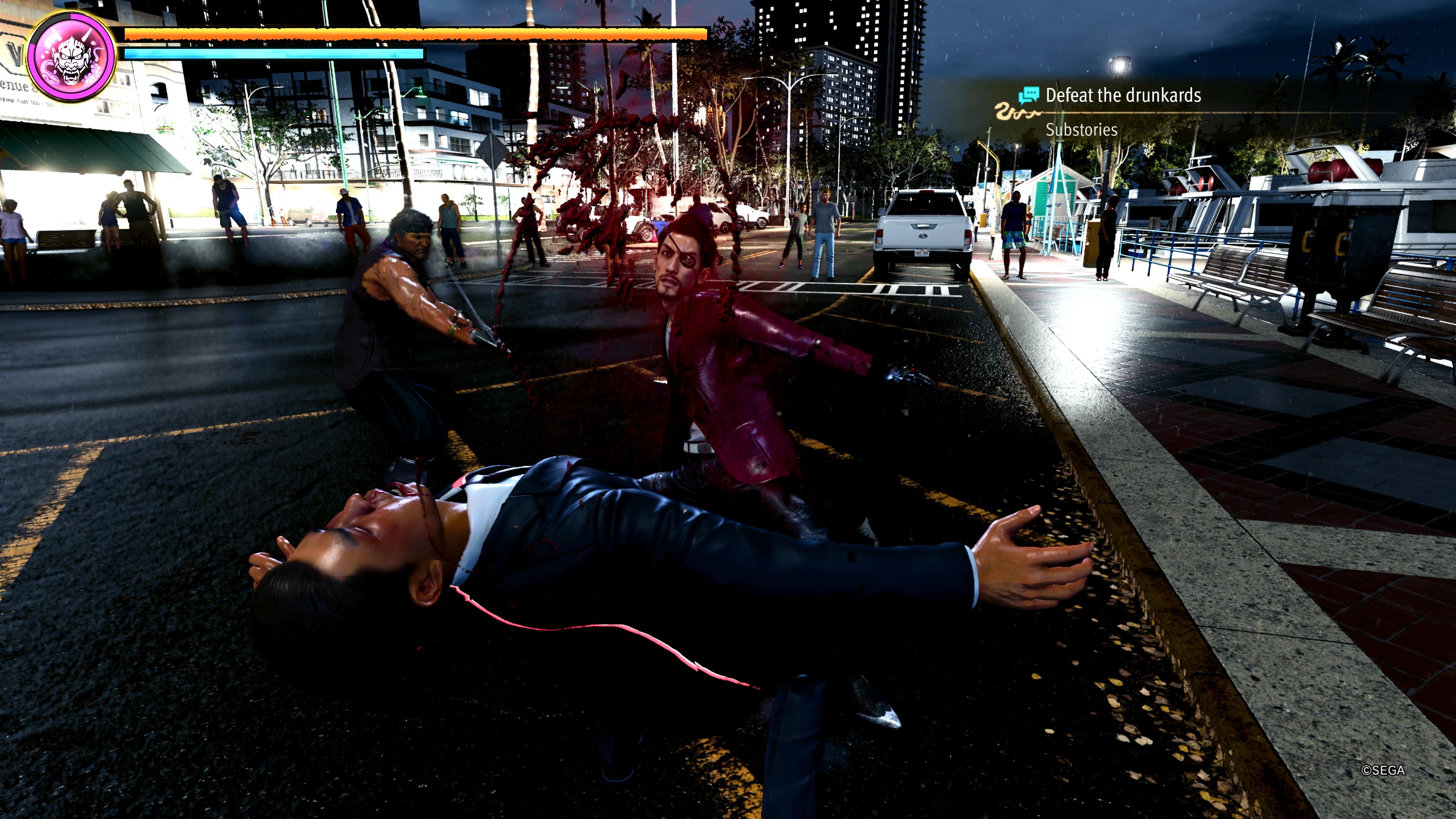
If you prefer getting up close and personal, there’s no shortage of melee combat. In fact, if you stick to the main missions, you’ll do far more hand-to-hand (or sword-to-sword) fighting than you will at the helm of your ship. Majima’s trademark ‘Mad Dog’ fighting style returns, using punches, kicks, and knives to lay your enemies flat. More interesting is the new ‘Sea Dog’ fighting style, which introduces a slingshot that allows you to zip to enemies Spider-Man style. Eventually, guns are introduced, as well as magical ultimate attacks that see you summoning mystical beasts from the deep to assist you in battle.
All of these elements pleasantly augment Majima’s repertoire, keeping the combat fresh as you mash through hordes of scallywags. You can also juggle enemies using a launch attack, which, when combined with the increase in on-screen baddies, brings more than a touch of Dynasty Warriors to the Like a Dragon franchise. This is emphasized during the large-scale pirate battles, where you’re joined by members of your crew in sprawling melee scraps.
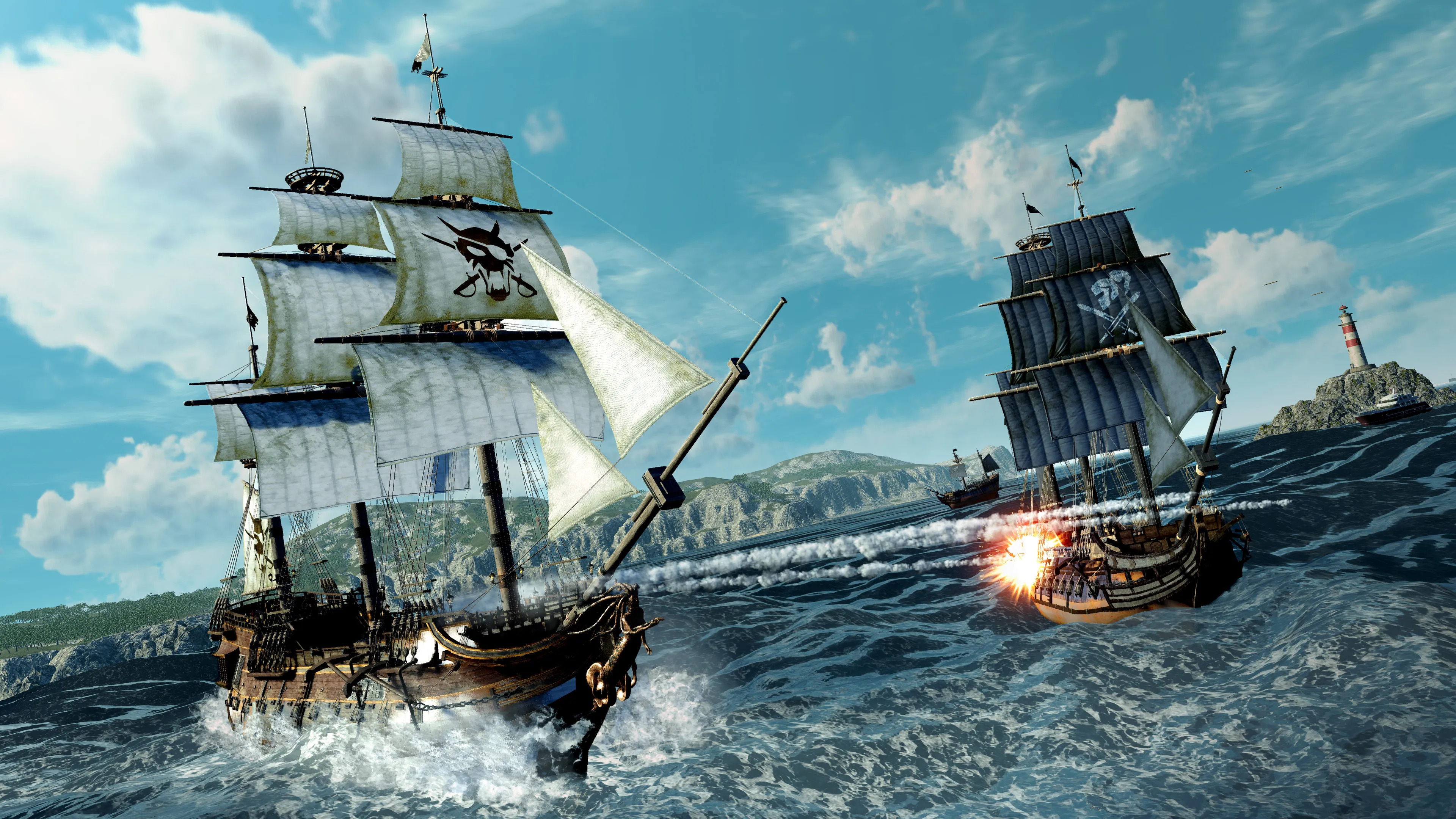
Confusingly, these pirate battles operate with different rules than regular land brawls. Your inventory is locked, so there’s no healing but you can bring along allies to assist you. You can also call on your Support Crew, a menagerie of animal buddies that can be recruited to impart various buffs during fights. I enjoyed the extra challenge these fights provided and the fact that you have to rely on your crew for aid, rather than being your usual one-man army.
Pirate Gaiden
Alongside the main quest, there are, of course, hundreds of distractions. On the seas, you’ll find islands to plunder and marauding pirates called the Devil Flags — whose questline unlocks the best upgrades in the game. In Honolulu, you’ll find more traditional Yakuza fare — quirky sub-stories, minigames, bounties and more. As well as earning you money and XP, most of Pirate Yakuza’s side-quests result in you recruiting a new crew member to serve on the good ship Goromaru.
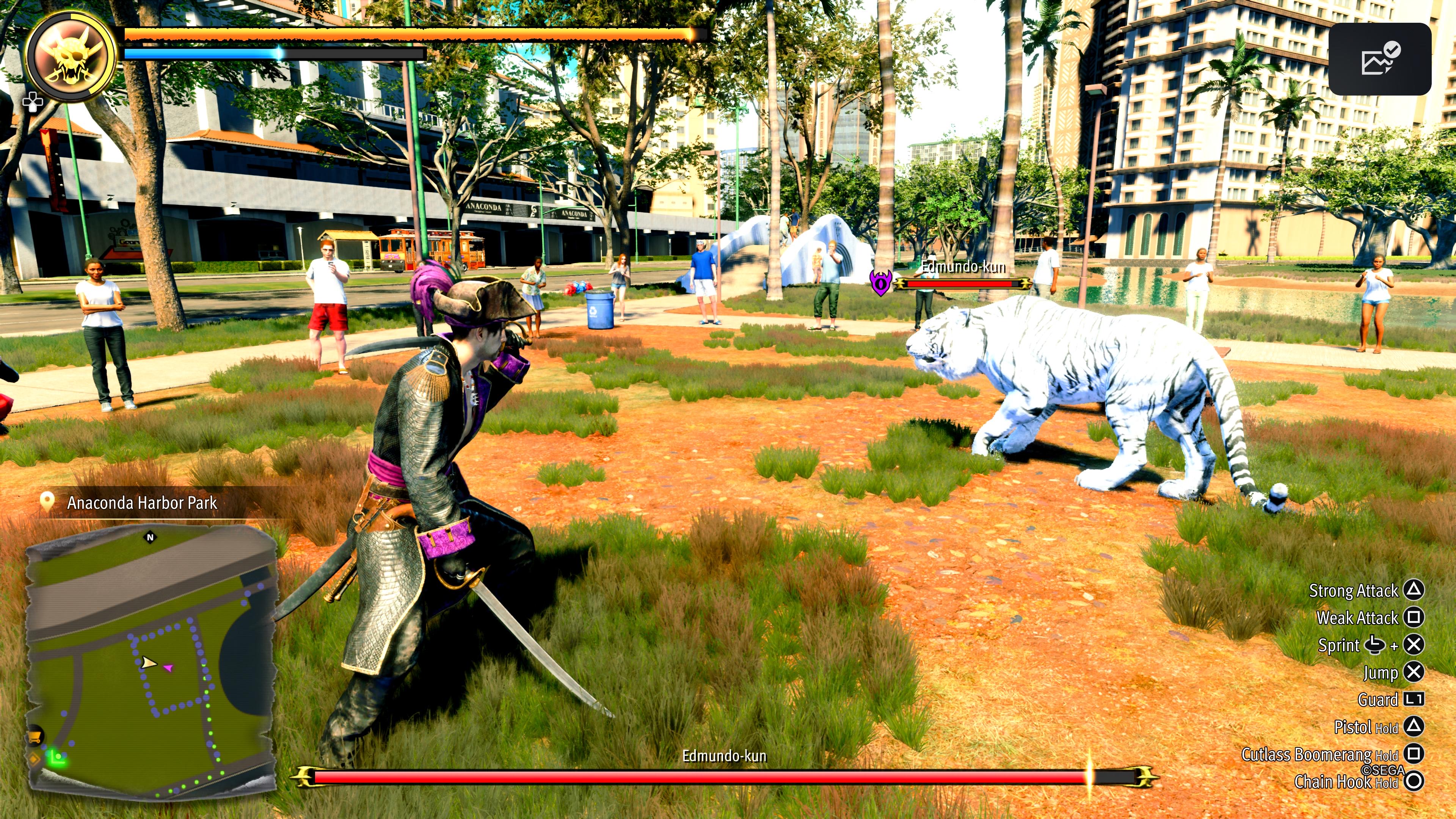
As you upgrade your ship, you’ll open up new slots for crew and you’ll need to assign them to the areas they're most proficient in to get the most out of them. These Pokémon-style collectible crew mates have varying stats and skills, and level up as you use them, improving their health, defense and damage output.
As all of the ancillary activities contribute to the overall goal of strengthening your ship and its captain, they’re well worth dipping into. Beyond gameplay benefits, the side content builds out the world, frequently delighting with its sharp and heartfelt writing. Defeating every Devil Flag fleet and clearing every sub-story is repetitive, but you’ll only need to sample a few of each to stay appropriately leveled for the main quest and there's mountains of content left for completionists.
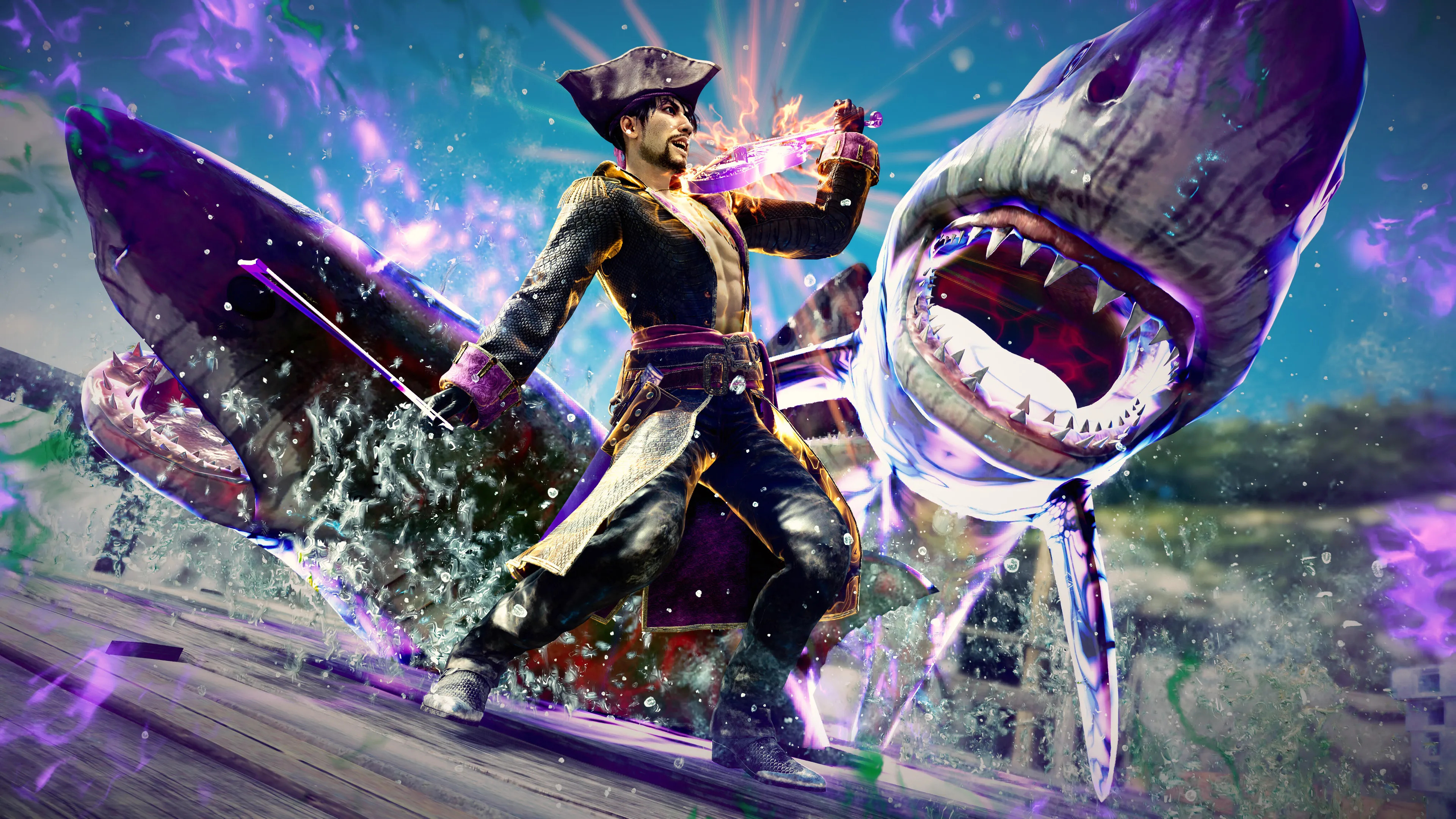
Like a Dragon’s trademark minigames of course return, but many will be disappointingly familiar to fans. Dragon Kart returns from Yakuza: Like a Dragon, as does Crazy Delivery from its sequel, along with a suite of classic SEGA games, and of course, karaoke. I’m willing to let the repetition slide because RGG probably had their hands full developing the surprisingly accomplished naval combat, but being a longtime fan, I skipped most of the minigames following their introduction.
Like a Dragon: Pirate Yakuza in Hawaii review: Verdict
By all accounts, Like a Dragon: Pirate Yakuza in Hawaii shouldn’t work. It’s too ambitious, too idiosyncratic. And yet, the charm and attention-to-detail RGG Studio pours into each of its games shines through, carrying you through its 20+ hours on a wave of positivity.
Its systems aren’t as deep as other pirate sims and its story isn’t as impactful as the series’ best entries. Still, the improvements to combat, suite of side activities and heartfelt themes make this another joyous adventure for Yakuza fans and newcomers alike.

Jack, a multimedia journalist, is the Sleep Deals Writer for Tom's Guide. Since attaining his journalism degree at the University of Gloucestershire, Jack has built up eight years of experience in writing and content creation. At Tom’s Guide, he is responsible for reporting on the latest deals and sales on mattresses, mattress toppers, beds, bedding, and sleep tech. Jack is fascinated by the link between sleep and mental health, productivity, and general quality-of-life. He’s especially interested in exploring how technology from brands like Sleep Number and Eight Sleep can improve sleep and general wellbeing. His other interests include live music and gaming, subjects about which he has penned thousands of words.
You must confirm your public display name before commenting
Please logout and then login again, you will then be prompted to enter your display name.
